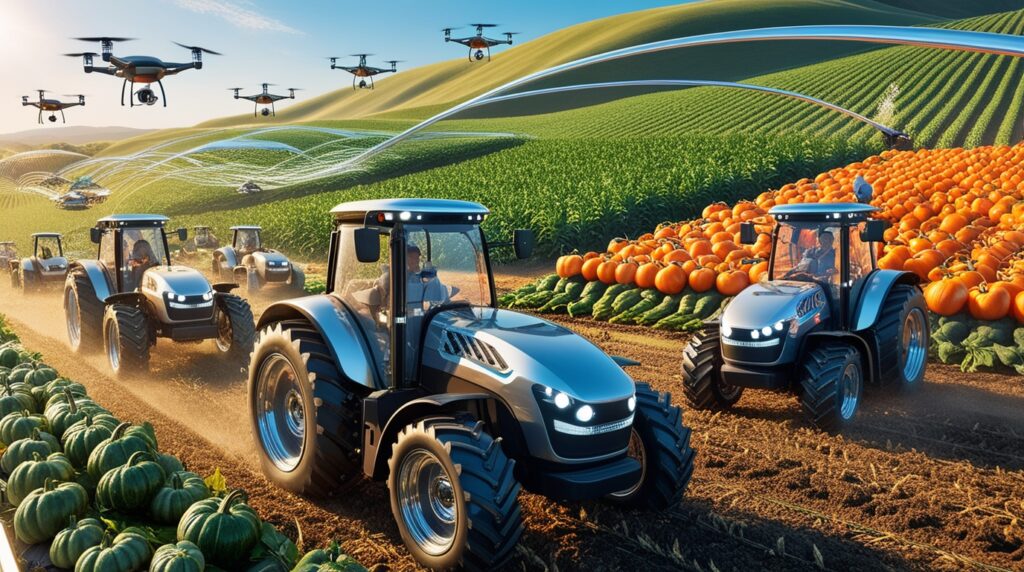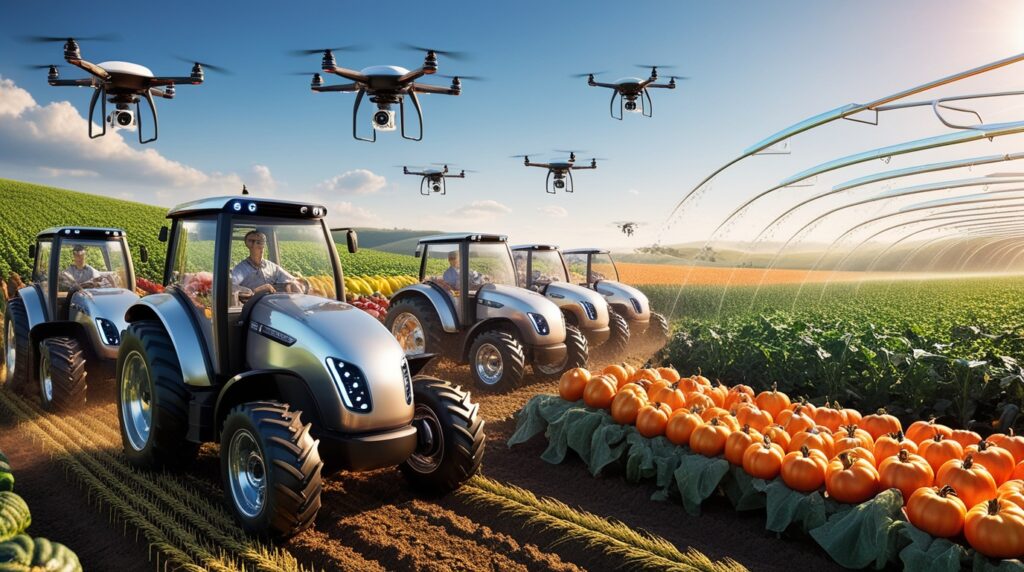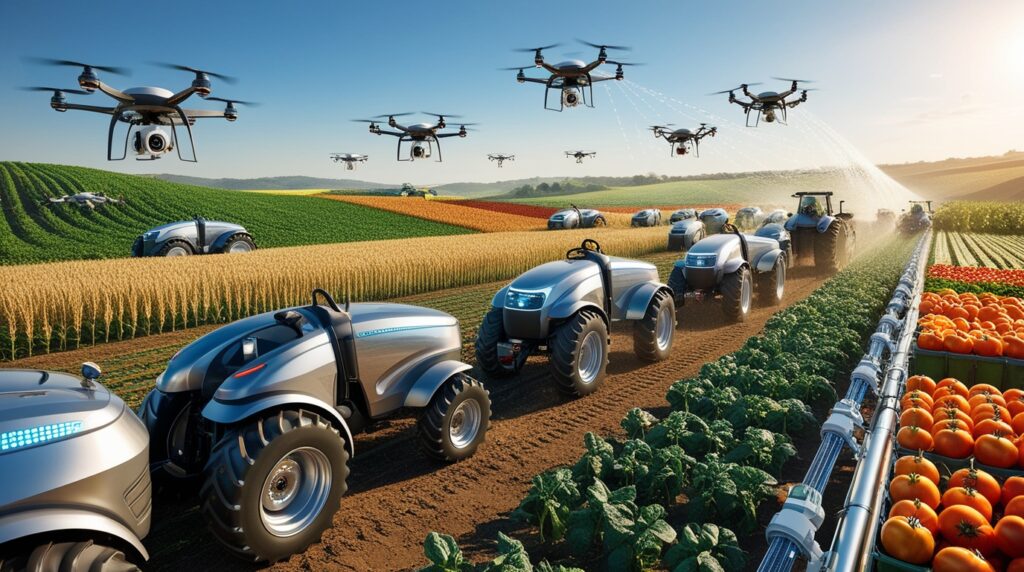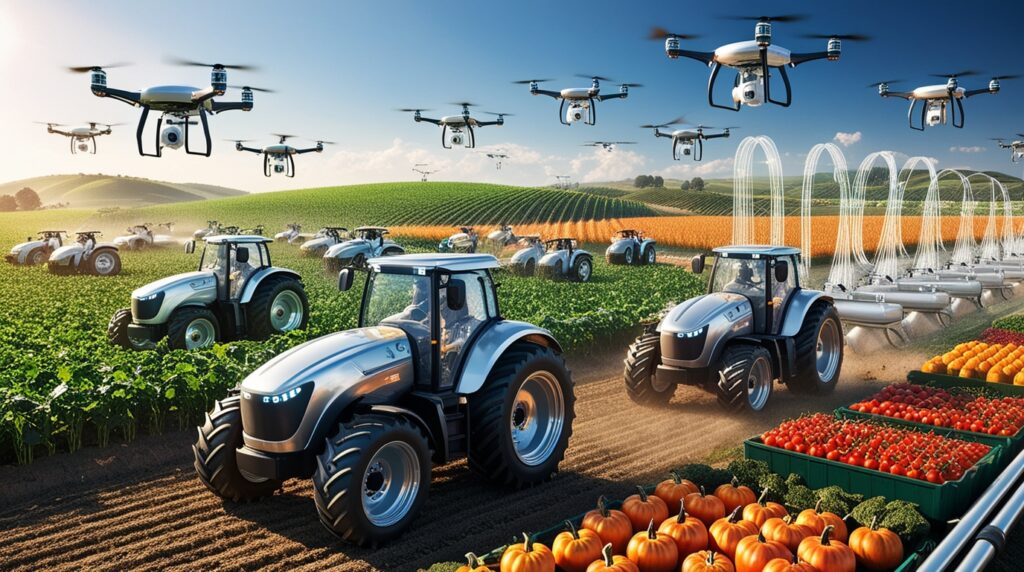
The agricultural industry has undergone significant transformation with the integration of advanced machinery and technology. These innovations are designed to enhance productivity, reduce labor dependency, and optimize resource use. From autonomous tractors to precision farming tools, advanced machines have reshaped modern agriculture.
- Smart Tractors and Harvesters
Autonomous Tractors: Equipped with GPS and AI, these tractors can plow fields, sow seeds, and apply fertilizers without human intervention. Farmers can monitor their operations remotely, saving time and labor costs.
Robotic Harvesters: These machines use computer vision to identify and pick ripe fruits and vegetables, reducing waste and increasing efficiency.
- Drones for Monitoring and Spraying
Crop Monitoring: Agricultural drones equipped with cameras and sensors can survey vast fields in minutes, providing data on crop health, soil conditions, and pest infestations.
Precision Spraying: Drones can apply pesticides and fertilizers with precision, reducing chemical waste and environmental impact.

- Automated Irrigation Systems
Advanced irrigation systems like drip irrigation and pivot systems are now integrated with IoT sensors. These systems ensure that water is delivered directly to the roots of crops in the right amount, saving water and improving crop yields.
- Soil and Weather Sensors
Soil Monitoring: Sensors analyze soil quality, pH levels, and moisture content, providing real-time data for better crop management.
Weather Forecasting: Advanced weather stations and AI tools help predict weather conditions, allowing farmers to plan their activities more effectively.
- AI and Machine Learning in Farming
Predictive Analytics: AI algorithms analyze data from various sources to predict crop yields, detect diseases, and recommend optimal farming practices.
Automated Decision-Making: Machine learning tools help farmers decide when to plant, irrigate, and harvest based on real-time data.
- Robotics in Greenhouses
Automated robots are used in controlled environments like greenhouses to manage planting, pruning, and harvesting. These robots work round the clock, ensuring maximum productivity.
- Supply Chain Integration
Technologies like blockchain and IoT are streamlining the agricultural supply chain. They enable traceability of produce, ensuring quality and reducing losses.

Benefits of Advanced Machinery in Agriculture
Increased Productivity: Faster and more efficient operations.
Cost Reduction: Lower dependency on manual labor.
Sustainability: Reduced resource waste and environmental impact.
Precision: Accurate application of inputs like water and fertilizers.
Challenges and the Future
While advanced machinery offers numerous benefits, it comes with challenges like high initial costs, the need for technical knowledge, and integration issues. However, with continuous innovation, these technologies are becoming more accessible and farmer-friendly.

The future of agriculture is undoubtedly tech-driven. As advanced machines become more prevalent, they promise to make farming more sustainable, efficient, and profitable.






